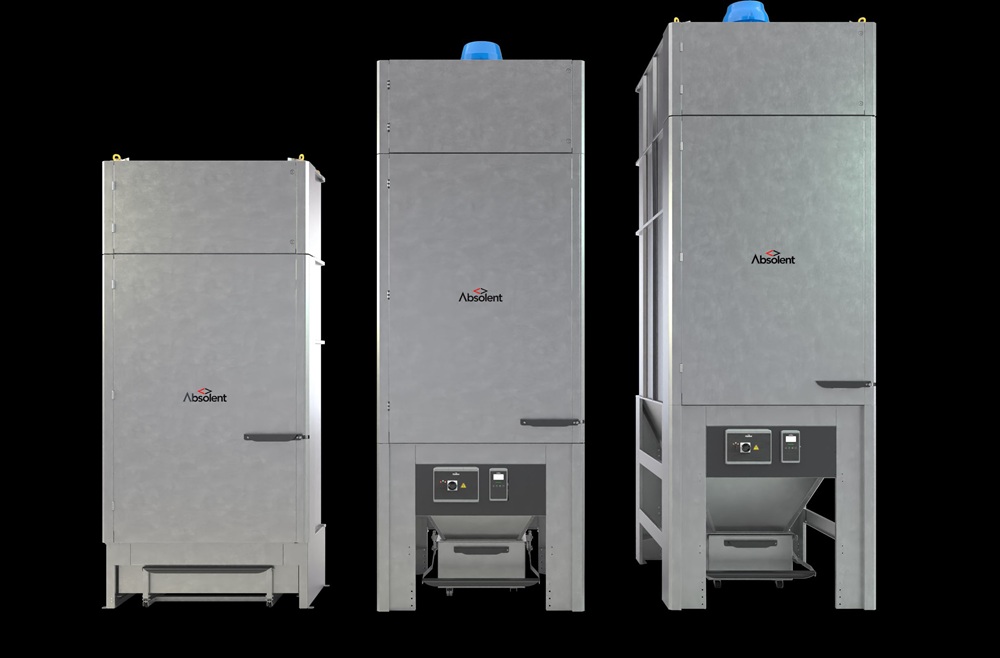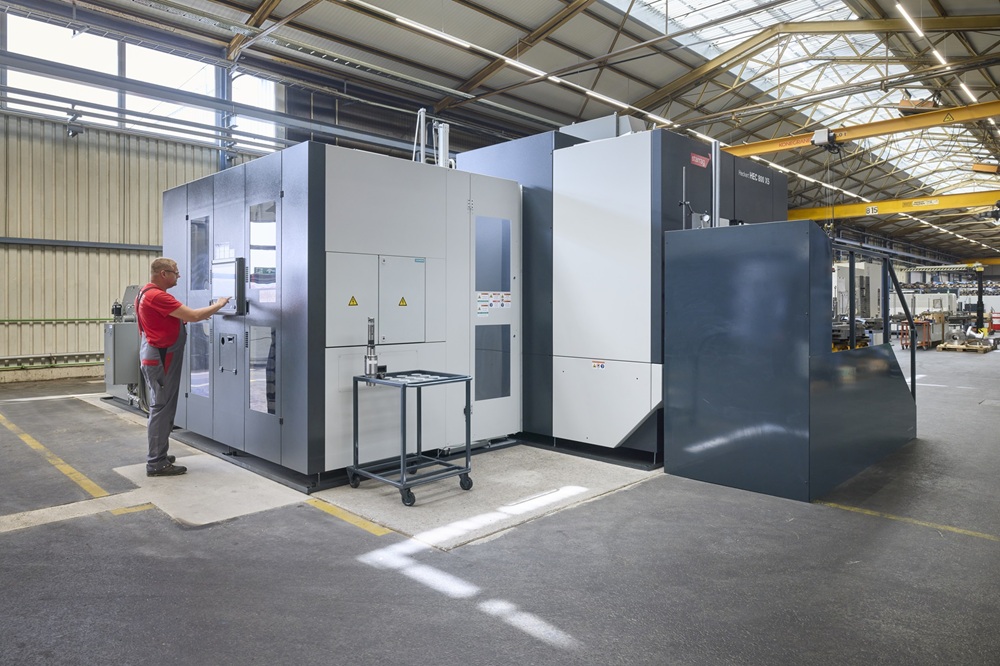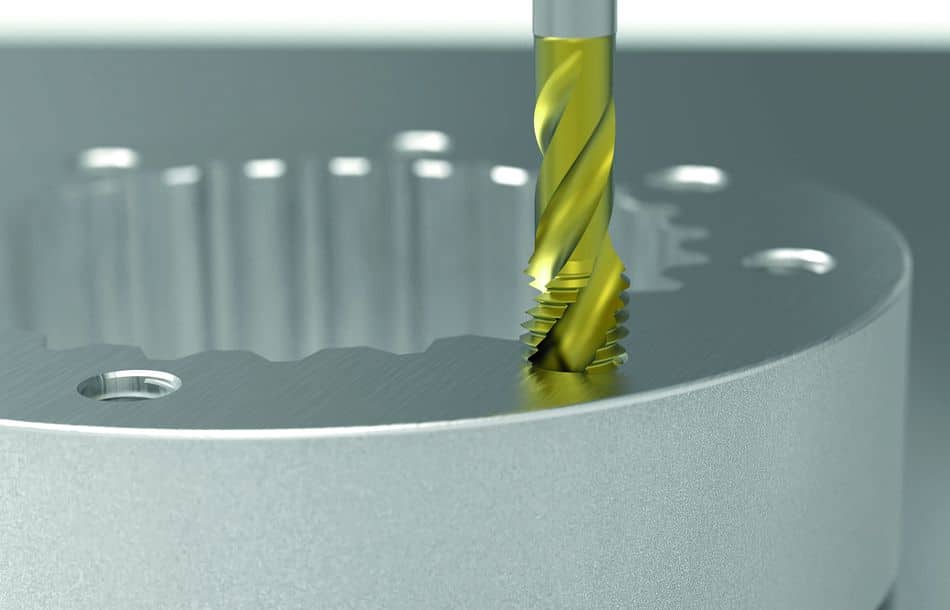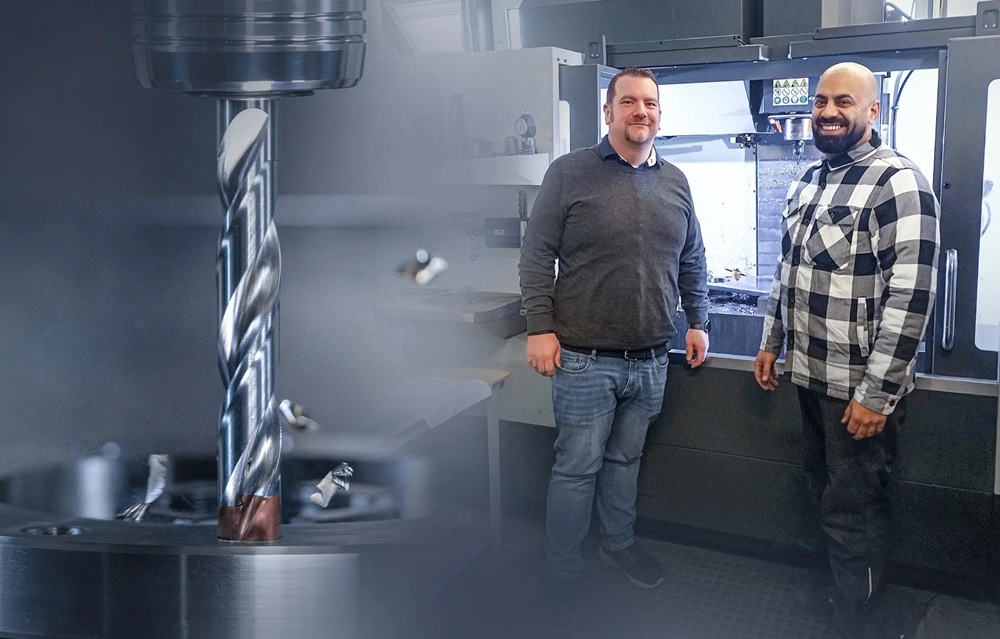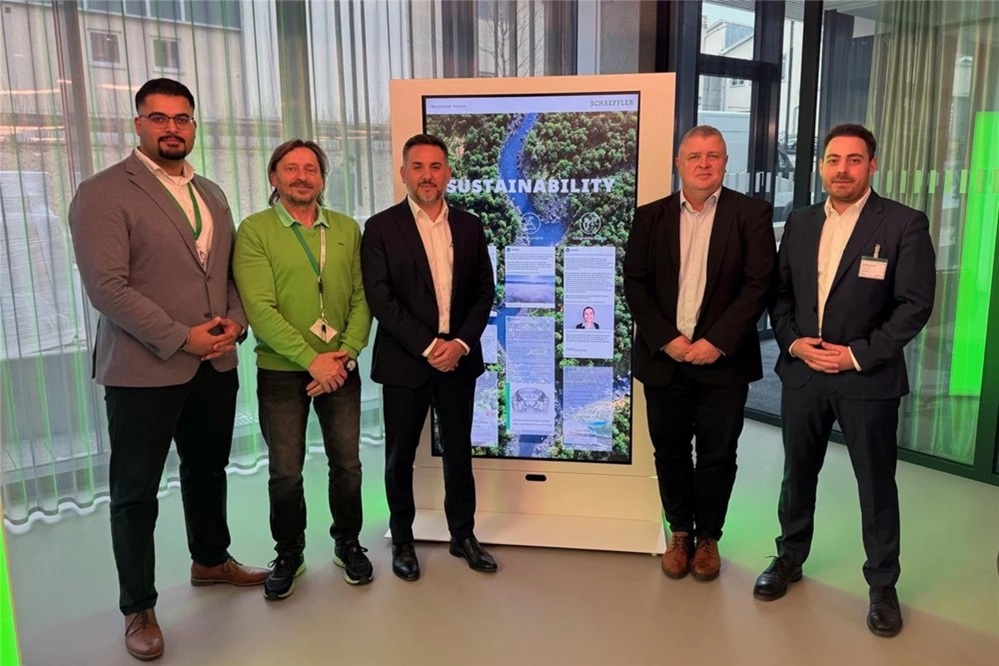“Only the best is good enough for our customers,” states Karl Kordik, responsible for
contract manufacturing at Neuson Hydrotec GmbH in Linz, Austria. With the new Starrag
HEC 800 X5 MT machining centre, his machining team can even produce complex housing
with numerous holes at different angles with maximum precision – in a single clamping
position and in half the time.
Neuson Hydrotec GmbH is a company where mechanical engineering, mechatronics and
hydraulics are intertwined in many ways. With around 50 employees, contract
manufacturing is the largest business unit.
Walter Füreder, one of two managing directors responsible for this division, describes it as
essential for the company: “We generate around half of our turnover with our contract
work. Some 20% of this involves doing the groundwork for other business units, while we
achieve the rest with leading companies in the plastics recycling, railway and mechanical
engineering sectors.”
Karl Kordik, sales manager for contract manufacturing, has known his customers and their
needs for many years. Components for injection moulding machines are also part of the
recurring contract work, such as shredder shafts and bearing blocks, all supplied to machine
tool manufacturers.
“We supply the largest proportion of our work, around 40%, to the plastics recycling sector,”
he says.
The services range from procuring raw material to CNC milling, grinding, lapping, honing,
welding and superfinishing to pre-assembly.
Kordik says: “Our customers appreciate that we supply them with a complete component,
including a 3D measurement report.”
The central topic in contract manufacturing is machining, with various CNC turning and
grinding machines – and several machining centres with pallet pools – available for this
activity. Among the highlights is the HEC 800 5X MT five-axis machining centre purchased in
2024.
Neuson Hydrotec’s investment was triggered by a complex component for a plastics
recycling machine that requires turning and milling, and numerous holes which need drilling
at different angles. In this particular recycling plant, used plastics are heated to around
400°C after shredding. A spindle presses the liquefied mass through a plate with tens of
thousands of holes about 0.2 mm in diameter, which retains contaminants that are removed
using a rotating scraper disc. The cleaned plastic flows to a cooling station and is cut into
pellets. Neuson Hydrotec manufactures the housing for this laser filter. It contains intricate
contours and numerous channels through which the contaminated and cleaned plastic first
flows.
“One hole runs through the entire component, and other channels meet at a certain angle,”
explains Kordik.
High precision is required for fluidic reasons where the channels must not be offset when
they meet.
“We manage this because we achieve a positioning accuracy per hole of less than 0.03 mm,”
he adds. “Although that doesn’t sound particularly difficult, the value corresponds to only a
few microns per axis if the holes are drilled at 45°.”
Until recently, the contract manufacturer was producing this housing on a vertical turning
and boring mill and a three-axis milling machine, in seven clamping positions. When the
customer ordered significantly larger quantities, Neuson Hydrotec decided to modernise
production to reduce manufacturing times. The solution pursued was complete machining
on a five-axis machining centre with a turning function.
There were several reasons why the decision was made in favour of the HEC 800 5X MT.
According to Kordik, one crucial factor was that the HEC 800 allows the component to
be clamped vertically.
“These components can only be clamped on a horizontal turning and milling centre with
great difficulty. Fast, automated workpiece replacement is even more difficult. The HEC 800
has a standard dual pallet changer, enabling set-up parallel to the primary processing time.”
On the HEC 800 5X, the fifth axis is located in the workpiece, not the tool, which saves the
company having to re-clamp. Ultimately, however, the decisive factor was the possibility of
obtaining a bed extension along the Z axis and an extended Yaxis.
Kordik describes the background: “We want to clamp components with a length of 1.1 m
and drill through. The standard Z-axis path of 1.3 m is insufficient for this task.”
Starrag supplied the HEC 800 5X MT with travel paths of 2050 mm along the Z axis and 1300
mm along the Y axis.
“No other machine manufacturer had offered such extensions. We would have had to
switch to much larger machines, which would have been more expensive and associated
with reduced dynamics.”
Instead, Neuson Hydrotec preferred to invest in functional additional equipment, such as a
cooling lubricant temperature control system.
“Our roughing operations generate much heat, which would otherwise be transferred into
the cooling lubricant and onto the component,” says Kordik. “But this would run the risk
that exact fit sizes would no longer be correct after cooling.”
The control software for interpolation turning was also on our ’to-buy list’. This is because
the laser filter housing requires a 350 mm hole offset from the centre by 8 mm.
“Thanks to the precisely controlled interpolation of the X and Y axes, we can create this
without any problems,” confirms Kordik.
Alternatively, his production colleagues would have to take the additional step of clamping
the component to be centred on the hole.
Arno Berger from Starrag says this can be done without problems: “We have tested this.
Despite the imbalance, we align with all required tolerances on the quickly rotating table.”
However, producing the eccentric hole using interpolation turning saves more time. Success
can be seen after just a few weeks. In the case of the filter housing described, reducing the
number of clamping positions from seven to one was possible.
“The time saving is 48%,” says Kordik, who had campaigned for this investment. “Essentially,
the reduced non-productive time has an impact. Moreover, as the component is now on the
machine for longer, the operator has more time for other tasks.”
The Heckert milling and turning centres also pay off when machining other components.
He concludes: “Now that the vertical turning and boring mill is no longer available, we
simply use the HEC 800 5X MT to produce turned parts. Even here, we are around 20%
faster due to multi-cutting tools, shorter tool change times and faster rapid traverse.”
More information www.starrag.com






